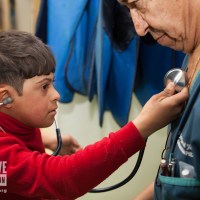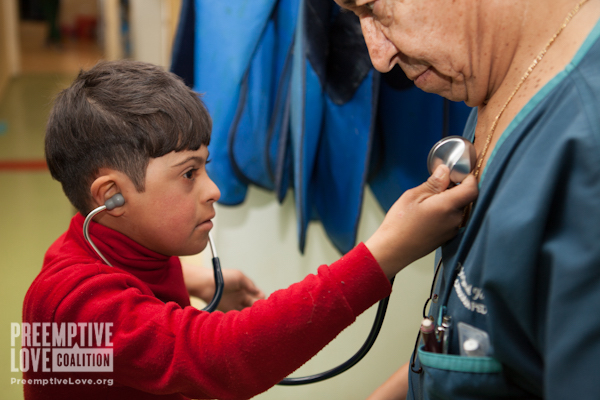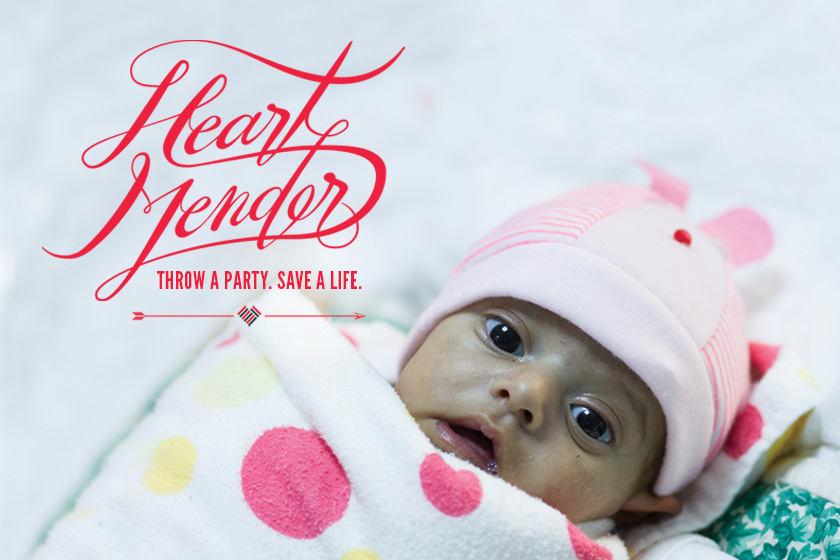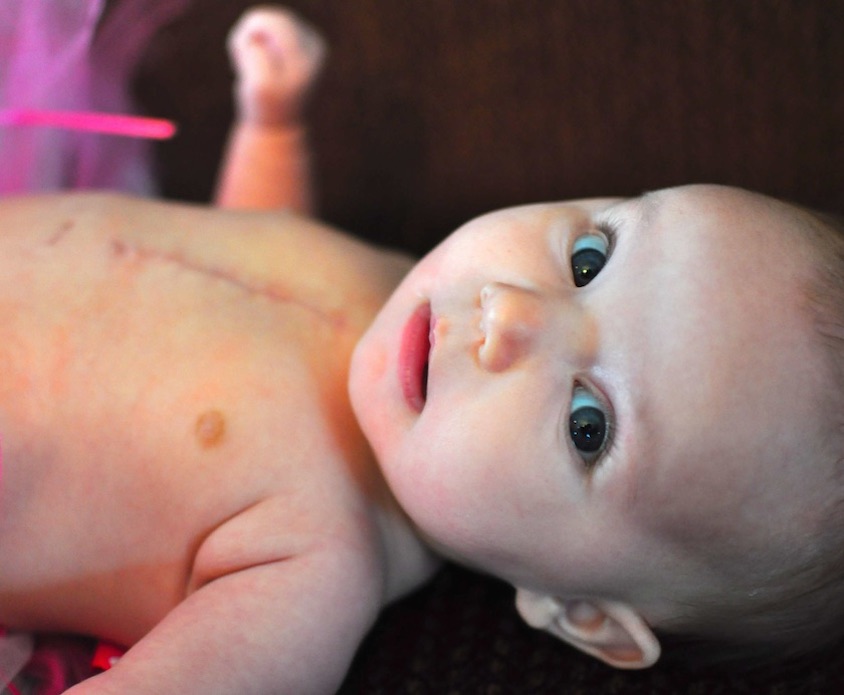
“Good news! Your daughter does not have pink eye! But we think there may be something wrong with her heart.”
Stunned silence echoed through the sterile exam room. I peered down in disbelief at Madeline, my 6-week old daughter. I closed my eyes, trying to comprehend the doctor’s words through my new-mom-sleep-deprived fog.
Her heart, I thought. That sounds serious.
Three hours later, the cardiologist explained that, unbeknownst to us, Madeline was born with a heart defect and was in severe heart failure. She explained that in order to save Madeline’s life, they would have to cut through her chest, crack open her rib cage, and temporarily stop her heart.
Tears blurred my vision, and my fingers and toes grew cold. The air in the room was suddenly thick and heavy. I desperately clutched Madeline, hoping I could hug her tight enough to stop her life from slowly seeping out with every heartbeat.
That day, October 21, 2010, shattered me. Everything I knew evaporated in an instant.
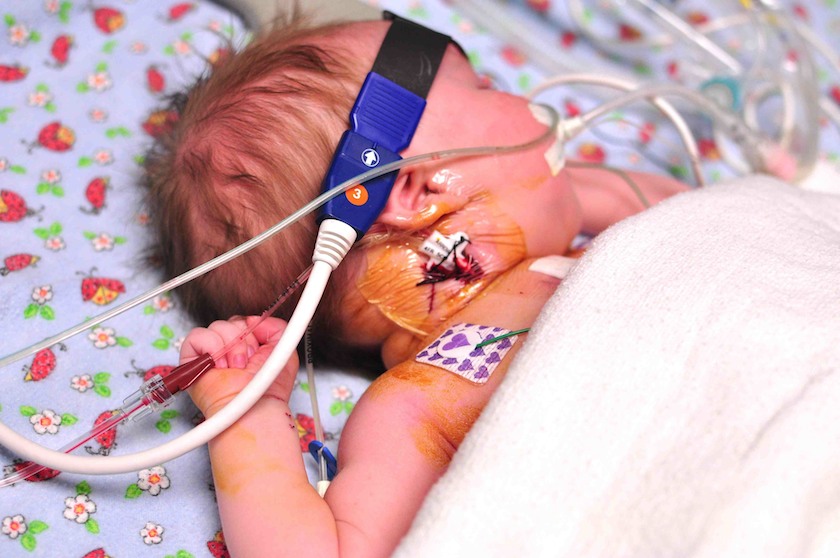
Paralyzed and powerless, I kept hoping I would wake up and find it was just a dream. Despite knowing that I was handing my precious girl over to a highly-trained surgical staff in a nationally ranked hospital, I was forced to live in the stark reality that she may not survive.
Despite my fears, a week later, I held Madeline for the first time with a healed heart. I exhaled a silent prayer of hope and thanks, knowing, but not comprehending, the precious gift I had just received.

Life holds inevitable pain that wrecks us, strips us, and leaves our hearts bruised and bleeding. But it also offers opportunities to let that pain open our eyes and transform us, so we can become catalysts for change.
On January 23, 2014, the pain of nearly losing Madeline blindsided me again.
It was well past midnight as tears splattered onto my kitchen table. I clicked the play button on the video for the twelfth time. I could not stop watching.
Each time Baby Noor and her family illuminated my screen, I saw Madeline, her scar burning an angry red where the surgeon had opened her chest and mended her heart. I saw my husband gently kissing her in desperate relief. I saw myself cradling her head in terrified hope. I saw our pain, our joy, and our fears in the faces of people I would never meet.
These strangers, I thought, they understand me. They have lived in the suffocating fear of handing your baby over to a stranger, not knowing if you will ever see her smile again. They have seen her face twisted in pain, her throat too hoarse to cry. They know the crushing relief of seeing your child rescued from death.
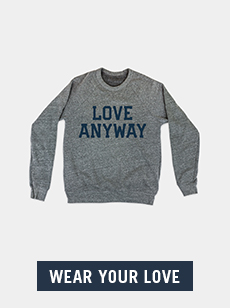
For the first time, I saw my rawest emotions in the face of a stranger. In that moment, Noor’s parents were not Muslims to me. They were not Iraqis. They were not those strange people who live in a desert surrounded by suicide bombers and AK47s. They were simply parents who, like me, had just witnessed their daughter journey through death into life. They were not enemies to fear. They were not helpless people who needed rescuing. They were peers who needed me to stand alongside them in solidarity.
That night, I also understood that our families had something else in common: not every story ends the way ours did.
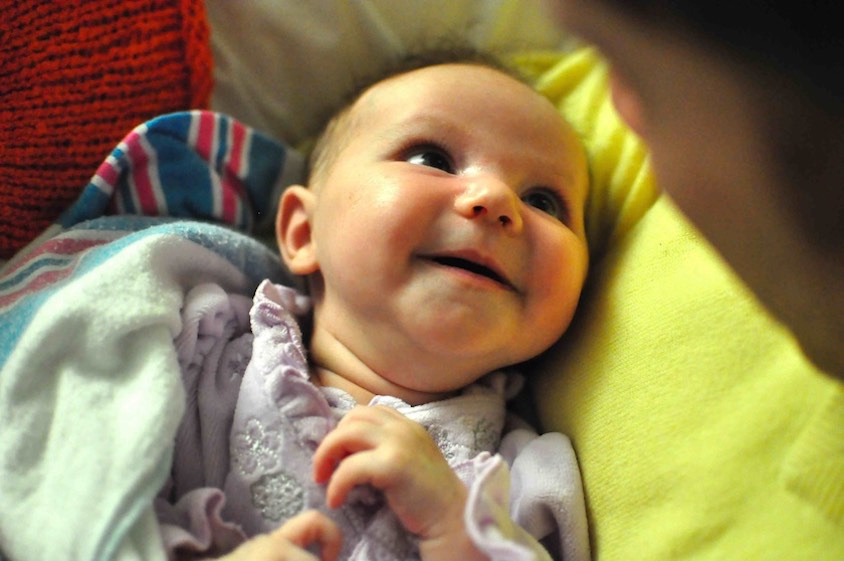
Aghast, I read about the backlog of children waiting in line for lifesaving heart surgery and realized that tens of thousands of families would lay awake that night, holding their precious children and wondering if it would be the last time. Again the air became thick and heavy as I felt the weight of having received the gift of life.
But in the midst of the terrifying reality, I also stumbled upon the hope, bravery, and peace of preemptive love.
Preemptive love does not ignore, minimize, flee, or romanticize pain. Preemptive love leans into pain, confronts it, and transforms it into an empowering force that remakes the world.
Preemptive love is not trite, easy or simple. It hurts to lean into pain. It is dangerous to lean into those who cause us pain. Preemptive love makes us vulnerable. It inspires us to traverse into active conflict zones and mend hearts across enemy lines. It emboldens us to see ourselves, our children, and those we love in the face of “the other.”
When we’re willing to blur the lines drawn between families, communities, and nations—when we see glimpses of our pain in others—we can lower our defenses and start to listen. We begin to see that their needs, their joys, and their pain are also ours.
And we are not alone. There is an entire movement of peacemakers across this conflict-ridden, war-torn world who continue to choose the path of preemptive love. People willing to offer up their pain in renewal rather than revenge. People who choose to mend hearts by remaking themselves, their communities, and the world.

This February, you can join me in the risky business of preemptive love by being a HeartMender for families like Noor’s.
On Valentine’s Day weekend, I’m throwing a #HeartMender party with my friends and loved ones to celebrate all the lives that have been saved—my daughter’s, baby Noor’s, and the lives of hundreds of kids in conflict zones like Iraq and Libya.
For me, it’s a chance to trade a typically superficial celebration of love for something more—a love that goes across “enemy” lines and helps us see ourselves in the faces of those we fear or misunderstand. A love that helps even more children make the journey from death to life.

